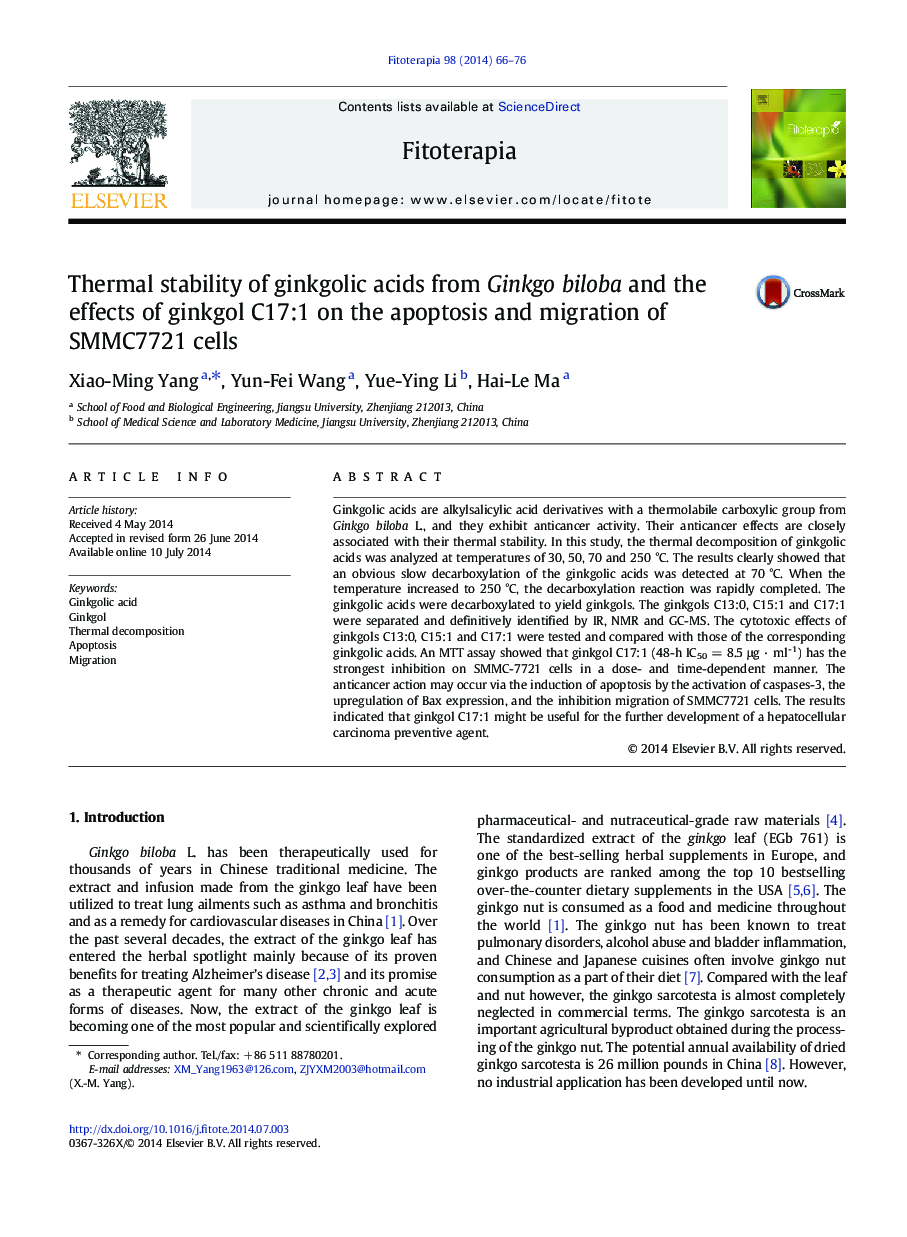| Article ID | Journal | Published Year | Pages | File Type |
|---|---|---|---|---|
| 2538512 | Fitoterapia | 2014 | 11 Pages |
Ginkgolic acids are alkylsalicylic acid derivatives with a thermolabile carboxylic group from Ginkgo biloba L., and they exhibit anticancer activity. Their anticancer effects are closely associated with their thermal stability. In this study, the thermal decomposition of ginkgolic acids was analyzed at temperatures of 30, 50, 70 and 250 °C. The results clearly showed that an obvious slow decarboxylation of the ginkgolic acids was detected at 70 °C. When the temperature increased to 250 °C, the decarboxylation reaction was rapidly completed. The ginkgolic acids were decarboxylated to yield ginkgols. The ginkgols C13:0, C15:1 and C17:1 were separated and definitively identified by IR, NMR and GC-MS. The cytotoxic effects of ginkgols C13:0, C15:1 and C17:1 were tested and compared with those of the corresponding ginkgolic acids. An MTT assay showed that ginkgol C17:1 (48-h IC50 = 8.5 μg · ml- 1) has the strongest inhibition on SMMC-7721 cells in a dose- and time-dependent manner. The anticancer action may occur via the induction of apoptosis by the activation of caspases-3, the upregulation of Bax expression, and the inhibition migration of SMMC7721 cells. The results indicated that ginkgol C17:1 might be useful for the further development of a hepatocellular carcinoma preventive agent.
Graphical abstractFigure optionsDownload full-size imageDownload high-quality image (144 K)Download as PowerPoint slide
